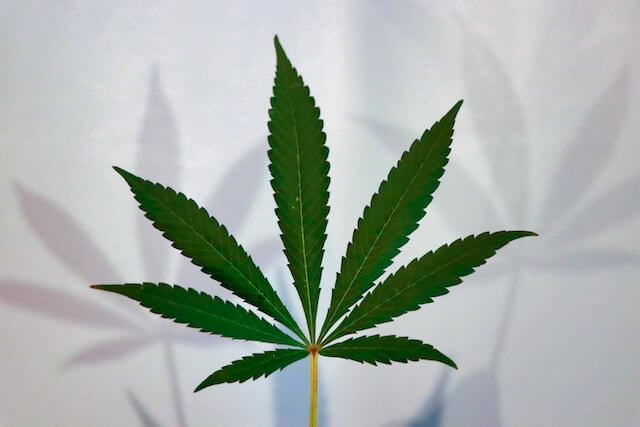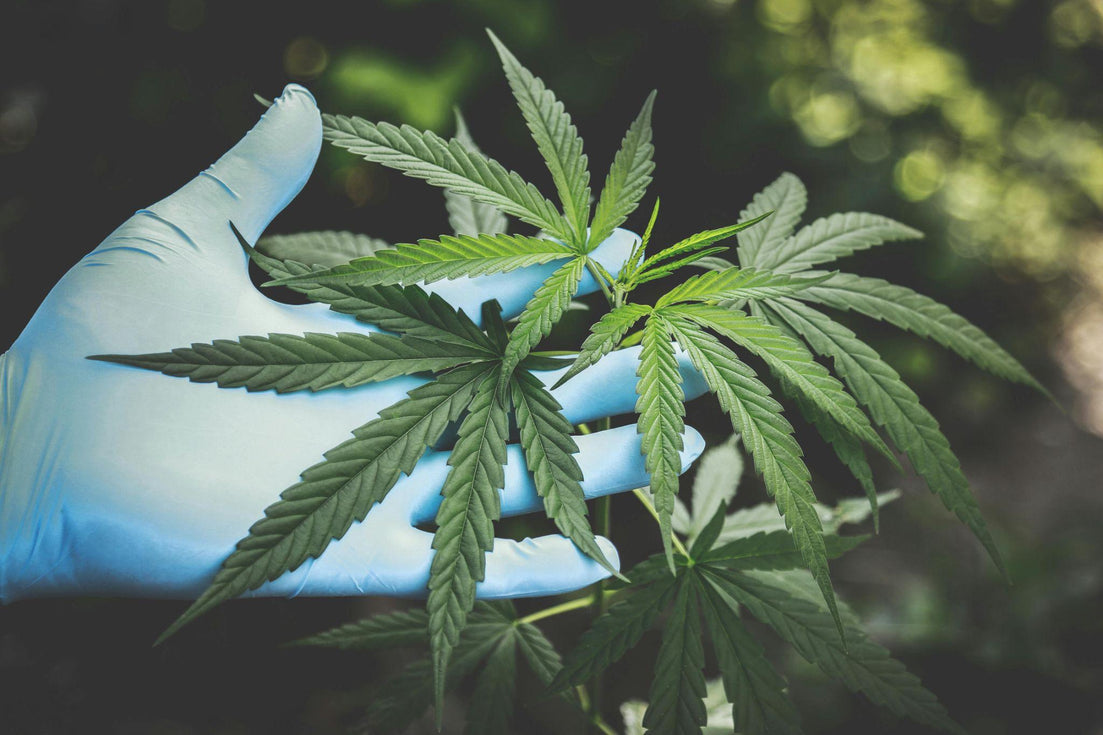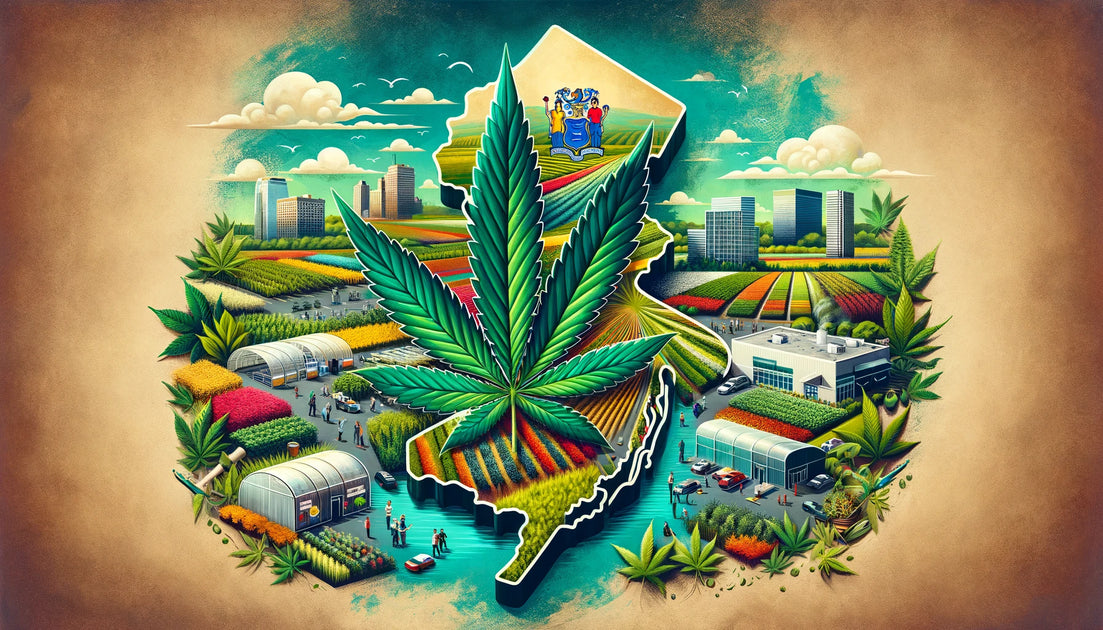Your cart is currently empty.

Ever wandered into the labyrinth of cannabinoids, only to stumble upon an enigma wrapped in a mystery? That's H4CBD. A newcomer on the scene, H4CBD is like a cryptic puzzle piece in the vast jigsaw that is cannabis science. But don't let its unfamiliarity intimidate you.
A synthetic offshoot of CBD with some added twists and turns - or should we say hydrogen atoms - H4CBD has sparked intrigue and debate among cannabinoid enthusiasts. Why does it produce noticeably stronger effects than regular CBD? How do the two differ when put to the test?
This guide will serve as your compass through this uncharted territory. You'll discover how H4CBD fits into the bigger picture, uncovering its unique properties and potential impacts along our journey together.
Stepping into the cannabinoids universe might feel a bit overwhelming, but remember, each stride you take unravels more mysteries.
Understanding H4CBD: A Synthesized Cannabinoid
The world of cannabis is ever-evolving, with new cannabinoids like H4CBD gaining attention. This synthesized cannabinoid comes from a process known as hydrogenation.
The Chemical Process Behind H4CBD
When you hear the term "hydrogenated CBD", it refers to H4CBD, a chemical compound created by adding hydrogen atoms to a natural CBD molecule. The result? A modified version that shares similarities but also has unique properties.
In essence, this chemical process involves taking cannabidiol (or CBD), which naturally occurs in hemp and other types of cannabis plants, and exposing it to high heat along with hydrogen in the presence of certain catalysts. It's similar to how vegetable oils are turned into margarine through industrial hydrogenation processes.
This technique alters the double bond structure within the original CBD molecules - an important aspect when considering its potential effects on our bodies' endocannabinoid system. For instance, studies suggest that these changes could lead to increased activity at certain receptor sites compared to unmodified or 'natural' cannabinoids.[1]
Comparing H4CBD and CBD
H4CDB is indeed different from natural cannabidiol (commonly known as CBD oil). While both substances derive from industrial hemp – hence their common reference as ‘cannabis products’ – they interact differently with our body’s native systems due mainly because of their differing molecular structures[2].
Think of it like two siblings. They come from the same parents (the cannabis plant in this case), but they're not identical twins - H4CBD is more like CBD's younger, edgier sibling. It may have a similar appearance and even act the same in certain ways, yet at its heart, it has an individual character.
Truth be told, a lot of folks have noticed that H4CBD hits harder than your usual CBD[3]. But there's still so much we need to learn about this compound.
H4CBD, also known as hydrogenated CBD, is a newly minted cannabinoid that's making waves in the cannabis industry. This version gets its unique properties from adding hydrogen atoms to natural CBD molecules, giving it an edge at certain receptor sites. Even though H4CBD and regular CBD both come from hemp plants, they have different impacts on our bodies because of their structural differences.
Psychoactive Effects of H4CBD
When it comes to cannabinoids, the effects can range from subtle relaxation to a noticeable psychoactive experience. Users report that H4CBD has stronger effects compared to traditional CBD, but why is this? Let's dig into what makes H4CBD potentially more potent.
Increased Activity at CB1 Neuroreceptors
The ECS, found in the body, has a significant influence on how we respond to cannabinoids such as CBD and THC. A key part of this reaction involves receptors in our brains known as cannabinoid receptor 1 (CB1).
H4CBD, interestingly enough, shows increased activity at these CB1 neuroreceptors compared with its cousin CBD. This heightened affinity for binding with CB1 could be behind the common reports of noticeably stronger effects by users who have tried both compounds.
To understand why this happens, let's take a brief detour down memory lane back to your high school chemistry class. Picture each cannabinoid molecule as a lock and each neuroreceptor as a unique keyhole on brain cells' surface. Recent studies suggest that due to its slightly altered chemical structure after hydrogenation, the "key" or H4CBD fits better into certain "keyholes," particularly those located on neurons within the ECS such as Cannabinoid Receptor 1 (CB-1). In essence, they click together more seamlessly than standard CBD molecules would—much like how some keys slide smoothly into locks while others need some jiggling around before they work.
This smoother interaction might explain why users often describe feeling enhanced psychoactive effects when using H4CBD. However, it's important to note that this doesn't mean the effects are identical to those of THC—the infamous cannabinoid known for its potent psychoactive properties.
Unlike THC, which is known to induce feelings of bliss and other mind-altering impacts due to its robust attraction for CB1 receptors, H4CBD presents a different encounter altogether. The precise nature of these effects can vary among individuals depending on various factors such as dosage and individual physiology.
Some folks have shared that H4CBD makes them feel chill and at ease, more so than before.
Amplified Impact of H4CBD: They say H4CBD packs a bigger punch than your regular CBD. Why? It works better with CB1 neuroreceptors - think of it as a key fitting perfectly into a lock. This leads to users feeling stronger psychoactive effects. But, unlike THC...
The Legality and Availability of H4CBD
When we talk about cannabinoids like H4CBD, one common question is always about their legal status. This hydrogenated form of CBD has stirred the curiosity among many users in the CBD market, but its legality can be a gray area.
In terms of federal law, it's not specifically listed as a controlled substance. But remember that regulations may vary across states and countries. So before you dive into using these new cannabis products or any other cannabinoid called synthetic cannabinoids, make sure to check your local laws first.
Choosing a Reputable Source for H4CBD Products
A critical part when buying H4CBD products is choosing where to get them from. As with anything else in life quality matters - especially when it comes to something you're going to put inside your body.
As demand grows for these potent variants on traditional cannabis plants' compounds such as this synthesized cannabinoid, more players are jumping onto the scene trying to take advantage of this newfound interest.
This influx isn't necessarily bad – competition often leads towards better prices and innovation. However there are some unscrupulous companies out there looking quick profit rather than offering top-notch quality products or ensuring safety protocols during production process; so doing homework important aspect purchasing decision here too source: FDA guidelines.
Navigating Legal Gray Areas With Care
Cannabinoids share complex relationships with global laws due mainly varying opinions what constitutes "natural" versus "synthetic." Despite lack concrete conclusions around long-term effects upon ingestion via human body, there are some general guidelines we can follow when exploring world of hydrogenated cannabinoids like H4CBD.
Just a heads up: laws can be wildly different depending on where you are. Even if federal law doesn't name it as a controlled substance, local or state laws might see things differently. So, always make sure to check out the rules in your specific area before buying any CBD derivative product.
Understanding the legal landscape is crucial when exploring H4CBD. While it's not labeled as a controlled substance federally, local laws may differ, so always check them before buying. Also remember to prioritize quality over price when choosing an H4CBD source - safety and effectiveness should be your top concerns.
H4CBD vs. Natural CBD: A Comparative Analysis
The two may share a similar lineage but they exhibit unique properties that differentiate them significantly.
The Chemical Structure Difference
Natural CBD has an open-ended chemical structure with a double bond between carbon atoms in its molecule. On the other hand, H4CBD results from adding hydrogen atoms to this structure - specifically four of them - hence the name H4CBD.
This process known as hydrogenation, changes how these molecules interact with our bodies' cannabinoid receptors due to their modified version. The result? An unexplored cannabinoid offering potential effects that have recently gained attention within cannabis circles.
Affinity for CB1 Neuroreceptors
Cannabinoids interact differently with various neuroreceptors present in our bodies based on their specific structures. Both CBD and synthetic cannabinoids like H4CBD bind primarily at two types of receptors: CB1 found predominantly in the brain and nervous system, and CB2 mostly located throughout immune cells.
Intriguingly enough, anecdotal evidence suggests that compared to regular CBD oil derived from industrial hemp plants which typically does not induce noticeable psychoactive effects; users report stronger effects after using HHC products because of increased activity at receptor CB1.(Key Stat 5).
Potency Comparison
Let's compare apples-to-apples or in this case, cannabinoids-to-cannabinoids. Although both H4CBD and CBD are derivatives of the cannabis plant, they differ noticeably when it comes to their potency levels.
H4CBD, although technically man-made, bonds more powerfully with our body's cannabinoid receptors - especially CB1 linked to mind-altering effects.(Key Stat 7). This fact makes it a go-to for many users.
Comparing H4CBD and natural CBD, both from the cannabis family, their unique features stand out. Their chemical structures differ - H4CBD's hydrogenated version changes its interaction with our body's cannabinoid receptors. Users often mention more potent effects from HHC products because they're busier at CB1 neuroreceptors.
FAQs in Relation to H4Cbd: What is H4Cbd?, H4Cbd Effects, H4Cbd vs Hhc [Guide]
What is the difference between H4CBD and HHC?
H4CBD, a hydrogenated form of CBD, tends to have stronger effects than regular CBD. On the other hand, HHC is derived from THC but doesn't give you as intense a high.
Can you get high off of H4CBD?
Yes, users report psychoactive effects with H4CBD because it has an increased activity at CB1 neuroreceptors in our brain compared to regular CBD.
What is H4CBD used for?
H4CBD is often used for its potential therapeutic benefits similar to those of natural cannabinoids like pain relief and anxiety reduction.
Does HHC get you stoned?
HHC can produce mild psychoactive effects. However, they are less potent than those produced by THC so it won't make you feel as 'stoned'.
Conclusion
Embarking on the H4CBD journey, you've uncovered a novel cannabinoid realm. A synthesized form of CBD, but with added hydrogen atoms that give it its unique properties.
H4CBD effects are noticeably stronger due to increased activity at CB1 neuroreceptors - an intriguing deviation from natural CBD's profile.
The question of legality and availability remains complex. Always remember to source quality products from reputable suppliers for safety and effectiveness in this ever-evolving market.
In comparing H4CBD vs other cannabinoids like HHC or even natural CBD, we see the subtle interplay between structure and effect. Each cannabinoid has its own narrative within our body’s system!
This guide serves as your compass through these winding paths of understanding "What is H4CBD?". Remember: every step taken towards knowledge makes us better navigators in this expansive universe called cannabis science.



